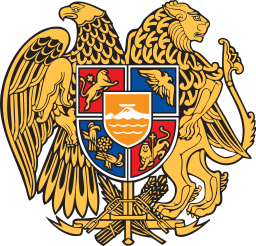The field of veterinary medicine is of great importance for the sustainable development of the economy of the Republic of Armenia.
The daily work of a veterinarian builds on emphasizing the issues related to prevention of infectious diseases and combat activities.
During an extensive period of development, new methods of diagnosing infectious diseases and unique biological preparations for combat and prevention have been developed.
It is a universal task for the Republic of Armenia to organize combat activities against contagious animal diseases, including those diseases that are common for humans and animals (zooanthroponoses).
Based on the complicated epidemiological situation of the animals’ infectious diseases in the region and specific provinces of Armenia and guided by the RA Law “On veterinary medicine”, and in order to establish a stable livestock epidemiological situation in Armenia and duly maintain it, every year within the framework of the “Farm animals’ vaccination” program the RA Ministry of Agriculture carries out livestock anti-epidemiological activities aimed at prevention of animals’ infectious diseases, including those infectious diseases that are common for humans and animals, particularly the following diseases: brucellosis and anthrax of farm animals, tuberculosis, blackleg, and nodular dermatitis of bovine, anthrax and FMD of small cattle, and bee varroosis.
Since 2012, the measures for organization of activities for prevention of the farm animals’ diseases has been carried out by the “Veterinary-sanitary and phytosanitary services center” state non-commercial organization of the RA Ministry of Agriculture through the Center’s structural network of 545 community veterinarians and 39 regional epidemiologists.
Within the framework of the “Farm animals’ vaccination” program, the execution of livestock anti-epidemiological preventive measures and diagnosing tests contributes to the establishment of a stable anti-epidemiological situation with regard to the animals’ infectious diseases in the territory of Armenia, from the veterinary-sanitary perspective it ensures production of goods and raw materials of the safe animal origin, contributes to protection of the general population from the diseases common for humans and animals, as well as enhancement of stable economic ties between the countries.
In order to improve the rapid response to the new cases of infectious diseases common for humans and animals and information exchange thereof, the RA Ministry of Agriculture, the RA Ministry of Health, the RA Ministry of Emergency Situations, and the RA National Security Service have jointly developed and submitted to the RA Government a draft of the RA Government Decree “On introduction of a comprehensive integrated electronic surveillance system of diseases in the Republic of Armenia».
The close cooperation of all stakeholders interested in implementation of activities of epidemiological and veterinary surveillance, rapid response, and diagnosing measures is especially important in order to prevent the infectious diseases that are common for humans and animals and organize the effective combat against these diseases.
In the field of veterinary medicine, the RA Ministry of Agriculture developed and the RA Government approved the RA Government Protocol Decree No.53 “On approving the concept of fighting against the brucellosis of farm animals in the Republic of Armenia and the schedule of measures for implementation of the concept of fighting against the brucellosis of farm animals in the Republic of Armenia” dated December 26, 2013.
On June 21, 2014, the National Assembly of the Republic of Armenia adopted the RA Law “On veterinary medicine”.
The Government of the Republic of Armenia approved the RA Government Decree No.1315-N dated November 12, 2015 “On defining the requirements for animal census and revoking the RA Government Decree No.59 dated January 29, 2004”.
BUSINESS ENVIRONMENT
(+374 11) 597 539
- BUSINESS ENVIRONMENT
- (+374 11) 597 539
TOURISM
(+374 11) 597 157
- TOURISM
- (+374 11) 597 157
QUALITY INFRASTRUCTURES
(+374 11) 597 167
- QUALITY INFRASTRUCTURES
- (+374 11) 597 167
PRODUCT LABORATORY TESTING
(+374 11) 597 166
- PRODUCT LABORATORY TESTING
- (+374 11) 597 166





